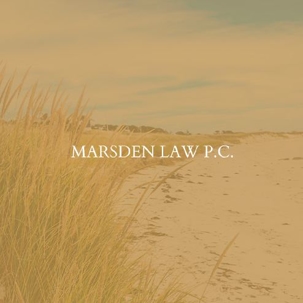Estate planning is an essential tool every adult should have to ensure that their assets are distributed according to their wishes. If you’re thinking about taking the necessary steps to obtain life insurance, you might be wondering how it will work into your estate plan. To guide you through the process, our team at Marsden Law P.C. explains how life insurance and estate planning pair together.
How Life Insurance Works
Life insurance is a common asset many people have that works into their long-term financing and estate planning. Many individuals purchase a life insurance policy as a way to protect their loved ones and provide them with financial support after they pass away.
There are many different types of life insurance policies that a person can have. One of them is term policies. With term policies, you pay premiums toward a policy, and if you pass away, a death benefit (a set amount of money) will go toward your beneficiaries. The death benefit can be paid out to your beneficiaries in a lump sum, monthly payment, etc.
Another type of life insurance is called whole life insurance. Like term policies, it also pays out a death benefit but has a cash value. Most policies often include investment-like, tax-deferred savings accounts.
Irrevocable Life Insurance Trust (ILIT) is another type of life insurance that can be extremely beneficial for those who expect extensive estate taxes. This type of life insurance is created to own and control a term or permanent life insurance policy while the insured is alive. They are also used to manage and distribute proceeds after the insured's death.
Life Insurance & Estate Planning
Although you might think you only need life insurance or estate planning to protect your loved ones, having both will immensely benefit your family. Life insurance can be highly beneficial because it can help families provide funding to pay estate taxes and offer other benefits to protecting assets and wealth. Life insurance can be used to pay estate taxes and cover other debts and expenses without selling or liquidating assets – such as businesses or real estate. It gives your loved ones flexibility in settling your estate.
Irrevocable Life Insurance Trust (ILIT)
Irrevocable life insurance is especially beneficial because it will not be considered part of an estate for federal income tax purposes. This means that your beneficiaries won’t have to pay estate or inheritance taxes on the life insurance death benefits that are paid out. Other life insurance policies are exempt from income tax but not estate tax. An ILIT can help mitigate the impact of estate taxes.
How Life Insurance Can Be Used In Estate Planning
Life insurance can be used for many functions in estate planning, including:
Life insurance can provide funds for the surviving spouse or children after the person’s death.
Life insurance can be used to provide funds for the payment of estate taxes, estate settlement costs, or the debt of the deceased.
Life insurance can be used to create or enhance an estate. It can be an estate building plan providing money to heirs.
Seek Legal Guidance
Creating a comprehensive estate plan is a complex process that you shouldn’t handle alone. Our team at Marsden Law P.C. has the knowledge, skills, and experience needed to help you develop an estate plan that will most benefit your loved ones and protect your assets. If you aren’t sure how to use life insurance to benefit your estate plan, our Metro West estate planning attorneys can help you develop an effective strategy.
Get in touch with our team today at (508) 568-6469 to schedule a consultation!
